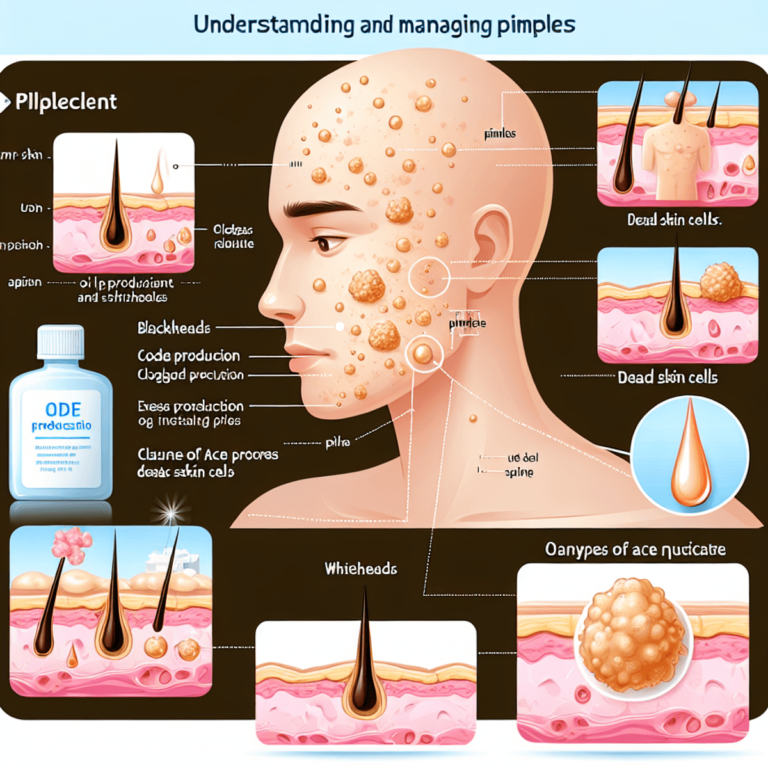How to get clear skin naturally at home

Introduction
The quest for clear, radiant skin drives countless individuals to explore various skincare solutions. Your skin serves as a reflection of your overall health, impacting both your physical appearance and self-confidence. Natural skincare methods offer a gentle, sustainable approach to achieving that coveted clear complexion without harsh chemicals or expensive treatments.
Benefits of Natural Skincare
- Fewer side effects compared to chemical treatments
- Cost-effective solutions using readily available ingredients
- Sustainable and environmentally friendly practices
- Long-term skin health improvement
- Enhanced understanding of your skin’s needs
The journey to clear skin doesn’t require a cabinet full of expensive products or complicated procedures. Simple, natural methods can effectively address common skin concerns like:
- Persistent acne and breakouts
- Uneven skin tone
- Blackheads and clogged pores
- Excessive oil production
- Dry, flaky patches
This comprehensive guide reveals proven strategies and home remedies to transform your skin naturally. You’ll discover practical tips for establishing an effective skincare routine, dietary changes that promote skin health, and natural remedies using ingredients from your kitchen.
Ready to unlock the secrets of clear, healthy skin? Let’s explore these natural solutions that you can easily incorporate into your daily routine for lasting results.
1. Follow a Consistent Skincare Routine
A well-structured skincare routine forms the foundation of clear, healthy skin. You need to wash your face twice daily – once in the morning to remove overnight oil buildup and again before bed to clean away the day’s accumulated dirt, sweat, and makeup. Use lukewarm water, as hot water can strip your skin’s natural oils and cause irritation.
Choosing the Right Cleanser
- For oily skin: Select a gel-based or foaming cleanser with salicylic acid
- For dry skin: Pick a cream-based cleanser with hydrating ingredients like ceramides
- For combination skin: Use a balanced, pH-neutral cleanser that’s neither too harsh nor too rich
- For sensitive skin: Look for fragrance-free, hypoallergenic formulas with soothing ingredients
Proper Cleansing Technique
- Wet your face with lukewarm water
- Apply cleanser using gentle circular motions
- Pay special attention to areas prone to blackheads and whiteheads
- Rinse thoroughly and pat dry with a clean towel
Moisturizing plays a crucial role in maintaining skin balance. When your skin lacks hydration, it compensates by producing excess oil, leading to clogged pores and breakouts. Apply moisturizer while your skin is slightly damp to lock in hydration.
Sun Protection is Non-Negotiable
UV damage can:
- Trigger inflammation
- Cause hyperpigmentation
- Lead to premature aging
- Worsen acne scars
Apply a broad-spectrum sunscreen with at least SPF 30 every morning, even on cloudy days. Choose a non-comedogenic formula to prevent pore blockage. Reapply every 2 hours when outdoors or after swimming/sweating.
Remember to be gentle with your skin – harsh scrubbing or using abrasive products can irritate your skin and worsen existing problems. Consistency with your skincare routine yields better results than occasional intensive treatments.
2. Nourish Your Skin from Within
Your journey to clear skin begins in your kitchen. A balanced diet combined with proper hydration forms the basis for healthy, radiant skin from the inside out.
Hydration: Your Skin’s Best Friend
- Drink 8-10 glasses of water daily
- Set reminders on your phone to maintain consistent water intake
- Track your hydration using a water bottle with time markers
- Replace sugary drinks with water or herbal teas
Power Foods for Radiant Skin
Your skin loves specific nutrients. Make sure to include these in your diet:
- Vitamin C: citrus fruits, strawberries, bell peppers
- Omega-3: salmon, chia seeds, walnuts
- Zinc: pumpkin seeds, lean meats, oysters
- Vitamin E: almonds, sunflower seeds, avocados
- Beta-carotene: sweet potatoes, carrots, spinach
Antioxidant-Rich Foods
Free radicals attack your skin every day. Fight back with these foods:
- Dark berries (blueberries, blackberries, raspberries)
- Green tea (2-3 cups daily)
- Dark leafy greens
- Dark chocolate (70% cocoa or higher)
Foods to Limit
Certain foods can worsen your skin condition. Try to limit:
- Processed sugar
- Dairy products
- Refined carbohydrates
- Greasy, fried foods
A clear complexion is a sign of good internal health. Fill your meals with colorful fruits and vegetables, lean proteins, and whole grains. View each meal as a chance to nourish your skin with the essential nutrients it requires for repair and maintenance.
Green tea deserves special attention – it contains powerful compounds called catechins that reduce inflammation and protect against sun damage. Brew a fresh cup each morning to kickstart your skin-clearing routine.
Remember to maintain consistent eating schedules and avoid skipping meals, as irregular eating patterns can trigger hormonal fluctuations that affect your skin’s appearance.
3. Try These Natural Remedies for Clear Skin
Your kitchen holds powerful ingredients that can transform your skin naturally. These DIY remedies target specific skin concerns while being gentle and effective.
Soothing Oatmeal Mask
- Oatmeal acts as a natural exfoliant, removing dead skin cells
- Contains anti-inflammatory properties to calm irritated skin
- Absorbs excess oil without drying out your skin
DIY Oatmeal Mask Recipe:
- Blend ½ cup of rolled oats into a fine powder
- Mix with 3 tablespoons of warm water
- Add 1 teaspoon of honey
- Apply to clean skin for 15 minutes
- Rinse with lukewarm water
Aloe Vera Gel Treatment
- Reduces redness and inflammation
- Speeds up healing of acne spots
- Provides lightweight hydration
Application Method:
- Extract fresh aloe vera gel from the leaf
- Clean the affected area thoroughly
- Apply a thin layer of gel directly to spots
- Leave overnight
- Repeat daily for best results
Manuka Honey Spot Treatment
- Contains natural antibacterial properties
- Helps reduce acne-causing bacteria
- Maintains skin moisture balance
Overnight Treatment Steps:
- Cleanse your face thoroughly
- Apply a small amount of Manuka honey directly to blemishes
- Cover with a small bandage if needed
- Leave overnight
- Rinse with warm water in the morning
Additional Natural Solutions:
- Green tea compresses reduce inflammation
- Tea tree oil acts as a natural antiseptic
- Apple cider vinegar helps balance skin pH
- Cucumber slices soothe irritated skin
These remedies work best when used consistently as part of your skincare routine. Start with one treatment at a time to test your skin’s reaction. Always patch test new ingredients on a small area of skin before applying them to your entire face.
4. Exfoliate Regularly but Gently
Regular exfoliation removes dead skin cells, unclogs pores, and prevents breakouts. Your skin naturally sheds dead cells every 30 days, but sometimes these cells need extra help to fully detach and reveal fresh, clear skin underneath.
Types of Exfoliants
Chemical Exfoliants
- Alpha-hydroxy acids (AHAs) – ideal for dry and sun-damaged skin
- Beta-hydroxy acids (BHAs) – perfect for oily, acne-prone skin
- Polyhydroxy acids (PHAs) – gentle enough for sensitive skin
Physical Exfoliants
- Facial scrubs with fine particles
- Cleansing brushes
- Washcloths or muslin cloths
- Facial sponges
Choosing the Right Exfoliant
For Oily Skin
- Use BHA products containing salicylic acid
- Start with 1-2% concentration
- Can be used 2-3 times per week
For Dry/Sensitive Skin
- Choose PHAs or gentle physical exfoliants
- Use once per week initially
- Look for products with soothing ingredients
For Combination Skin
- Alternate between chemical and physical exfoliation
- Focus stronger exfoliants on oily areas
- Use gentler options on dry patches
Best Practices for Exfoliation
- Exfoliate in the evening after cleansing
- Apply gentle pressure – let the product do the work
- Never exfoliate broken or irritated skin
- Always follow with moisturizer
- Use sunscreen the next day
- Start with once-weekly sessions
- Increase frequency based on skin tolerance
Remember: over-exfoliation can damage your skin barrier and cause irritation. Listen to your skin and adjust your routine accordingly. If you notice redness, burning, or increased sensitivity, reduce the frequency or strength of your exfoliant.
5. Manage Stress Levels Effectively
Your skin reflects your emotional health. Studies indicate a direct connection between stress levels and skin issues – when stress hormones spike, your skin produces more oil, resulting in breakouts and inflammation.
The Stress-Skin Connection:
- Increased cortisol production triggers excess sebum
- Compromised skin barrier function
- Delayed wound healing
- Intensified inflammatory responses
- Worsened existing skin conditions like eczema and psoriasis
Establishing a routine for managing stress is just as important as your skincare routine. Here are some practical techniques you can include in your daily life:
1. Deep Breathing Exercises
- Practice 4-7-8 breathing: Inhale for 4 counts, hold for 7, exhale for 8
- Set reminders to take breathing breaks throughout your day
- Use breathing apps to guide your practice
2. Movement and Exercise
- Gentle yoga poses release physical tension
- 30-minute daily walks reduce cortisol levels
- Regular exercise improves blood circulation to your skin
3. Mindfulness Practices
- 10-minute daily meditation sessions
- Mindful skincare routines – focus on the sensations as you apply products
- Stress-tracking journal to identify triggers
4. Sleep Hygiene
- Maintain consistent sleep-wake cycles
- Create a calming bedtime routine
- Limit screen time before bed
5. Social Connection
- Regular check-ins with friends or family
- Join support groups or communities
- Share concerns with trusted individuals
By incorporating these stress management techniques into your skincare routine, you can take a holistic approach towards achieving clear and healthy skin. The way your body responds to stress impacts every aspect of your skin’s health, from repairing cells to producing collagen.
Consider keeping track of both your stress levels and the condition of your skin in order to spot patterns and adjust your management methods accordingly. A skin journal can be helpful in monitoring how various stressors affect your complexion.
6. Be Mindful of Your Habits That Affect Skin Health
Your hands come into contact with countless surfaces throughout the day, collecting bacteria, dirt, and oils. Each time you touch your face, these contaminants transfer directly onto your skin, potentially leading to breakouts and irritation.
Common face-touching scenarios to avoid:
- Resting your chin on your hands while working
- Rubbing your eyes when tired
- Picking at spots or scabs
- Touching your face while applying skincare products with unwashed hands
Breaking the face-touching habit:
- Place sticky notes on your computer or mirror as reminders
- Keep your hands busy with a stress ball or fidget toy
- Ask friends or family to point out when they notice you touching your face
- Track your face-touching triggers to identify patterns
Essential habits for clearer skin:
- Wash your hands thoroughly before applying skincare products
- Use clean towels and pillowcases – replace them weekly
- Keep your phone screen clean with antibacterial wipes
- Tie your hair back to prevent oil transfer from hair to face
- Use clean makeup brushes and beauty tools
Signs of habitual skin picking:
- Constant urge to squeeze or pop pimples
- Scanning your skin for imperfections
- Picking at healing spots
- Creating new wounds or scars
Replace these harmful habits with positive alternatives like applying a spot treatment or ice cube to problematic areas. If you struggle with compulsive skin picking, consider keeping your nails short and wearing gloves at times when you’re most likely to pick.
7. Choose Cosmetics Wisely for Clearer Skin
Your makeup choices play a crucial role in maintaining clear skin. Non-comedogenic products are specifically formulated to avoid clogging your pores, making them essential for acne-prone skin. In fact, using the right type of makeup can significantly reduce breakouts and support your journey towards clearer skin, as highlighted in this guide on the best type of makeup for acne-prone skin.
When selecting cosmetics, look for these key indicators:
- Oil-free formulations
- Products labeled as non-comedogenic
- Mineral-based makeup options
- Fragrance-free varieties
- Hypoallergenic formulas
The term “non-comedogenic” means the product has been tested and proven not to block pores. This classification is particularly important for:
- Foundation
- Concealer
- Primers
- BB creams
- Setting powders
Your skincare products should also follow these guidelines. Look for lightweight, water-based moisturizers and serums that won’t create a barrier on your skin.
Tips for Makeup Application:
- Clean your makeup brushes weekly
- Replace products every 3-6 months
- Remove makeup before exercising
- Never share makeup tools
- Apply products with clean hands
For those with sensitive or acne-prone skin, mineral makeup offers a gentle alternative. These products contain natural minerals like zinc oxide and titanium dioxide, which can actually benefit your skin while providing coverage.
Remember to patch test new products on a small area of your skin for 24 hours before full application. This practice helps identify potential reactions and ensures your chosen products truly support your journey to clearer skin.
It’s also worth noting that certain types of makeup can contribute to acne if not chosen wisely. For more insights on how makeup can cause acne, be sure to explore this resource.
8. Adopt Healthy Lifestyle Habits Beyond Skincare
Your skin‘s health extends far beyond your skincare routine. Quality sleep acts as your body’s natural reset button, triggering cellular repair and regeneration during the night. Research shows that 7-9 hours of uninterrupted sleep reduces cortisol levels, a stress hormone linked to acne breakouts and skin inflammation.
Create an optimal sleep environment:
- Set your bedroom temperature between 60-67°F (15-19°C)
- Use blackout curtains to block artificial light
- Invest in breathable cotton pillowcases
- Replace pillowcases weekly to prevent bacteria buildup
Pre-sleep habits for better skin:
- Avoid blue light exposure 2 hours before bedtime
- Practice a calming bedtime ritual
- Sleep on your back to prevent facial skin compression
- Elevate your head slightly to reduce morning puffiness
Your sleeping position impacts skin health. Side-sleeping can create sleep lines and contribute to wrinkle formation. Back-sleeping helps prevent this while allowing skincare products to work effectively throughout the night.
Signs of sleep-deprived skin:
- Dark under-eye circles
- Pale, dull complexion
- Increased breakouts
- Slower wound healing
- More visible fine lines
Poor sleep quality shows on your skin within 24 hours. Your skin’s pH levels become imbalanced, leading to dehydration and increased oil production. This creates a cycle of skin issues that proper sleep can help prevent.
Regular exercise complements good sleep habits by improving blood circulation and oxygen delivery to skin cells. A post-workout shower helps prevent sweat-induced breakouts, especially on your back and chest areas.
9. When to Seek Professional Help for Persistent Skin Issues?
Natural remedies work wonders for many skin concerns, but certain signs indicate it’s time to consult a dermatologist:
Persistent Acne
- Breakouts that don’t respond to over-the-counter treatments after 6-8 weeks
- Deep, painful cysts or nodules
- Acne that leaves dark spots or scarring
Skin Changes
- New or changing moles
- Unexplained rashes that persist beyond two weeks
- Patches of discoloration that spread or change
- Sudden onset of severe dryness or oiliness
Specific Conditions
- Eczema flare-ups that interfere with daily activities
- Large, visible pores that don’t improve with home treatments
- Skin congestion that persists despite regular exfoliation
- Age spots that multiply or darken rapidly
Physical Discomfort
- Itching that disrupts sleep
- Burning or stinging sensations
- Skin that feels tight or painful
- Excessive dryness leading to cracking
Treatment Response
- Natural remedies causing irritation or allergic reactions
- Home treatments making skin conditions worse
- Quick-fix promises failing to deliver results
A dermatologist can:
- Perform professional skin analysis
- Identify underlying causes of skin issues
- Prescribe targeted treatments when needed
- Create personalized skincare plans
- Recommend professional procedures if necessary
Your skin deserves professional attention when home remedies aren’t enough. A dermatologist’s expertise can prevent long-term damage and help achieve your clear skin goals faster.
Conclusion: Embrace the Journey Towards Clear Skin Naturally!
Getting clear skin naturally at home requires dedication, consistency, and patience. Your skin transformation journey is unique – what works for others might not work for you. Start by implementing small changes in your daily routine:
- Establish a consistent skincare regimen
- Nourish your body with wholesome foods
- Stay hydrated throughout the day
- Practice stress management techniques
- Choose skin-friendly products
Remember that achieving clear, glowing skin doesn’t happen overnight. Natural methods take time to show results, but they offer lasting benefits without harsh chemicals. Trust the process and celebrate small improvements along the way.
Listen to your skin’s needs and adjust your routine accordingly. Some days might require extra care, while others might need minimal intervention. Your commitment to natural skincare practices will reward you with healthy, radiant skin that glows from within.
Take the first step today – your journey to naturally clear skin starts now.
FAQs (Frequently Asked Questions)
What are some natural remedies for achieving clear skin at home?
Natural remedies such as oatmeal masks for exfoliation, aloe vera gel for its anti-inflammatory properties, and Manuka honey for its antibacterial benefits can help promote clear skin. Incorporating these into your skincare routine can enhance your complexion.
How important is a consistent skincare routine?
A consistent skincare routine is crucial for maintaining clear skin. Washing your face twice daily with a gentle cleanser, using a suitable moisturizer, and applying sunscreen with SPF 30 or higher can protect your skin from dirt, impurities, and harmful UV rays.
What dietary changes can help improve my skin’s appearance?
Staying hydrated by drinking at least 8 glasses of water daily and consuming a balanced diet rich in fruits, vegetables, whole grains, and lean proteins can significantly improve your skin’s health. Foods high in antioxidants like berries and green tea are also beneficial.
How does stress affect my skin, and how can I manage it?
Stress can lead to various skin issues like acne flare-ups and eczema outbreaks. To manage stress effectively, consider practicing relaxation techniques such as yoga, meditation, or deep breathing exercises on a daily basis.
Why should I choose non-comedogenic makeup products?
Non-comedogenic makeup products are formulated to not clog pores, making them ideal for acne-prone individuals. Choosing these products helps prevent breakouts and promotes clearer skin.
When should I seek professional help for my skin issues?
If you experience persistent skin problems that do not improve with home remedies or over-the-counter treatments, it’s advisable to consult a dermatologist. Signs that indicate the need for professional advice include severe acne, large pores, or other significant changes in your skin’s condition.










